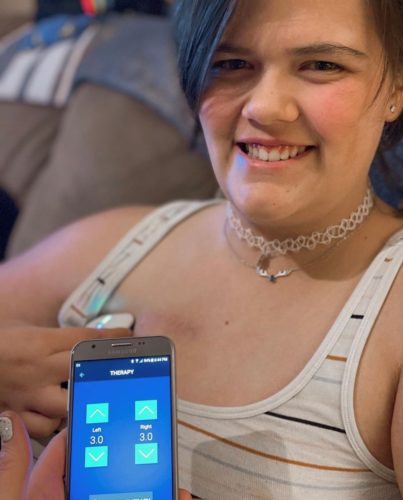After a family trip to Finland last summer, Jasmine’s family became increasingly concerned about some unusual symptoms she was experiencing. What started as occasional numbness in her lip or left side of her face last spring had progressed to twitching, which the family later learned were increasingly strong seizures. Her family had been proactive in […]
It’s been 12 years, but Brandy Epling still chokes up at the traumatic memory of her firstborn’s birth. It was a difficult pregnancy, with preterm labor forcing a 33-day stay at a southwest Washington hospital for the mom-to-be, followed by months of bedrest. Ultrasounds revealed the baby’s brain was a bit bigger on the left […]
Epilepsy can be very difficult to treat – and some families explore a range of options seeking relief from seizures for a child with epilepsy looking for a solution. For 14-year-old Taylor Johnson, a procedure known as deep brain stimulation (DBS) resulted in her experiencing a completely new life and the significant seizure relief she […]
New research and treatments for epilepsy have come a long way in the last several years. In this Q&A, we talk with Dr. Edward “Rusty” Novotny, director of Seattle Children’s Epilepsy Program and professor of neurology and pediatrics at the University of Washington. As the director of one of the largest epilepsy programs in the […]
For the past 15 years, Seattle Children’s Research Division has been at the forefront of breakthrough innovations. From new drugs to treat cystic fibrosis, to first-in-the-nation use of laser ablation for epilepsy and brain tumors to remove unwanted cells, the research division is advancing our mission to provide hope, care and cures to help every […]
The phone call came at 2 a.m. It was a neonatologist calling about Kimberly Aldinger and Scott Houghtaling’s son, Grayson. Kimberly had given birth to premature twins a month earlier and both babies were in the neonatal intensive care unit (NICU) at Swedish Hospital. The new parents had returned home to get a much-needed night […]



